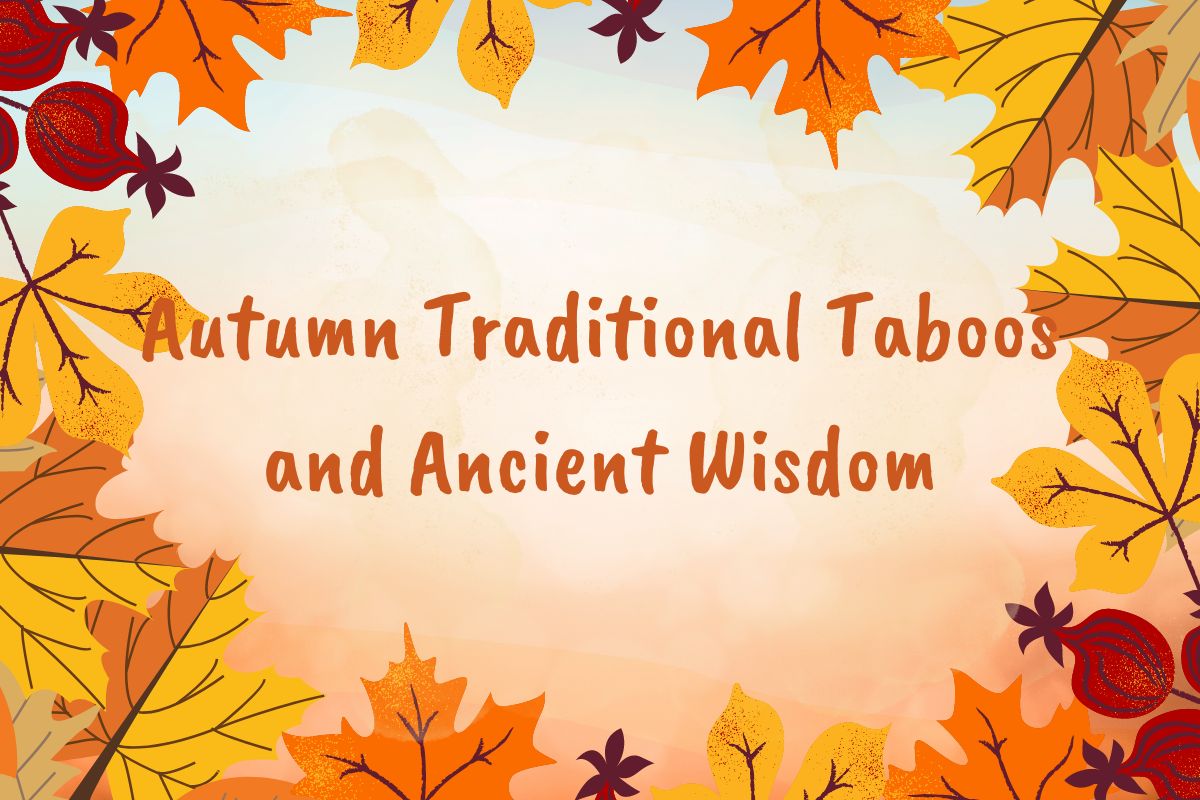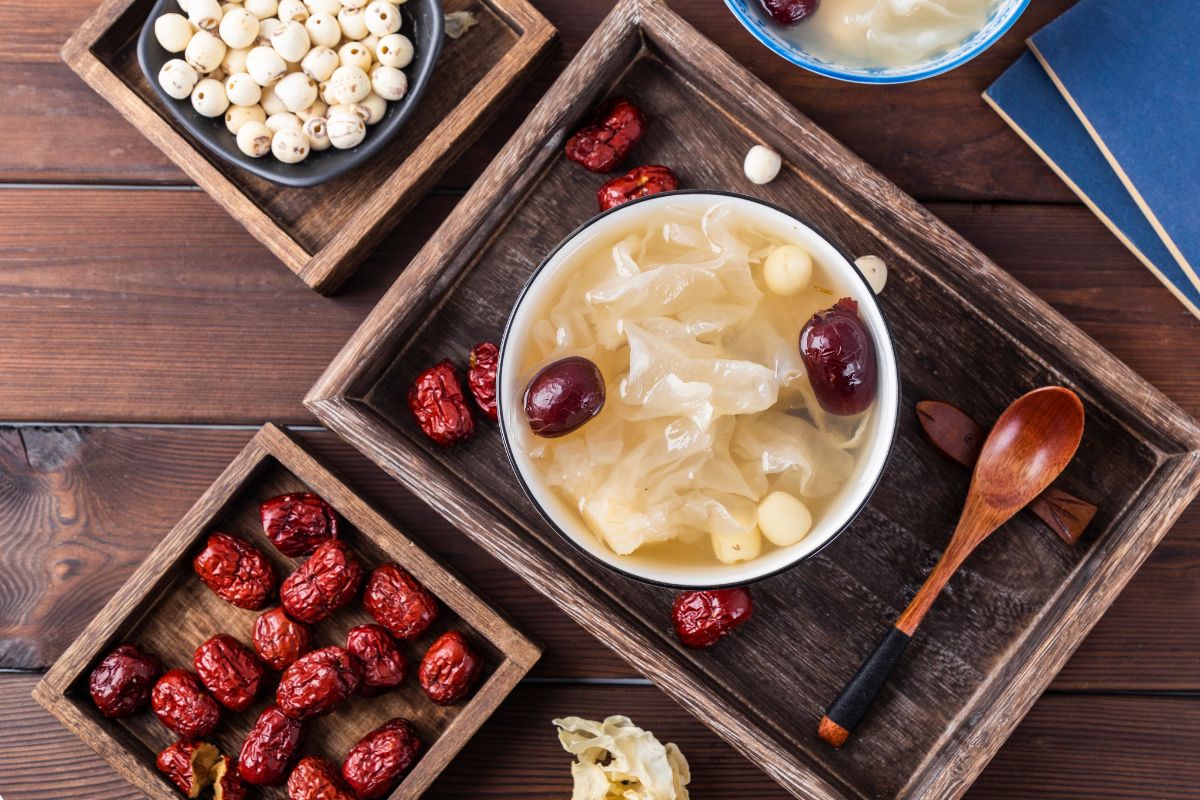Autumn Traditional Taboos and Ancient Wisdom
Did you know? In the long history of ancient China, autumn signifies not only a season of harvest but also a series of ancient and mysterious taboos禁忌() and customs. These traditional wisdom are gathered from millennia of living experiences and continue to influence people's lifestyle habits. This article aims to introduce you to several ancient taboos related to autumn and the beliefs behind them!

禁忌 (jìn jì), noun, taboos
Examples:
- 在某些文化中存在着特殊的禁忌。
There are special taboos in some cultures.
zài mǒu xiē wén huà zhōng cún zài zhe tè shū de jìn jì 。 - 我们应该尊重不同地区的禁忌。
We should respect the taboos of different regions.
wǒ men yīng gāi zūn zhòng bù tóng dì qū de jìn jì 。
Avoid Late Nights and Early Mornings
In our lives, seasonal changes often necessitate different adjustments in our daily routines. Unlike the advocacy for early rising in summer, traditional views in autumn suggest a gradual transition towards "early to bed, early to rise."

Autumn presents a reserved tone in nature, as if all things are preparing for the upcoming winter. Our bodies should align with this natural rhythm, where early bedtime allows for ample rest and early rising lets us embrace the fresh autumn air, aiding in better energy storage for combating the cold of winter.
By doing so, when winter's chill descends, our bodies will have sufficient energy to resist the harsh cold, maintaining health and vitality.
Avoid Consuming Bitter and Cold Foods
Traditional Chinese medicine holds unique insights into autumn health maintenance. Autumn is associated with the lungs, and as the climate gradually becomes dry, nourishing the lungs and preventing dryness becomes crucial.
Therefore, it is advised to refrain from excessive consumption of bitter or cold foods, such as bitter melon or chilled beverages. While bitter melon has heat-clearing properties in summer, consuming it excessively in autumn may harm lung qi. Chilled drinks can cause the body to feel cold, stimulating the lungs, possibly leading to coughs or digestive issues.

Opting for warm-nourishing lung foods like pears, tremella mushrooms, and lilies is recommended, providing the best care for our lungs in autumn.
Harvest Silence
In ancient times, farmers held reverence for autumn harvests. During the harvest season, there was a custom of "harvest silence." They believed that field deities safeguarded the crops' abundance, and loud noises would disturb these deities, affecting the following year's harvest.

This practice reflects ancient people's reverence for nature. In modern society, while we may not have such specific taboos, we can still learn to respect nature and cherish the fruits of labor. Every grain of produce is hard-won; we should treat nature's offerings with gratitude.
Avoid Extensive Earthworks
Ancient people had unique worldviews and understandings of nature. They believed that autumn was unsuitable for earthwork, as disturbing the earth could disrupt the balance of qi, affecting the peace of homes and the fortunes of the following year.
This taboo underscores ancient people's respect for the changing rhythm of nature. They believed that each season possesses specific energies and atmospheres, and we should harmonize with nature rather than oppose it.

Though modern science may not entirely validate these beliefs, the reverence for nature and principles of harmonizing with it are still worth emulating. When engaging in construction or renovation, we could consider natural factors and minimize environmental harm.
Avoid Excessive Sadness悲伤(bēi shāng)
悲伤 (bēi shāng), noun, sadness
Examples:
- 她的脸上充满了悲伤。
Her face was filled with sadness.
tā de liǎn shàng chōng mǎn le bēi shāng 。 - 这种悲伤的情绪难以消散。
This kind of sadness is hard to dispel.
zhè zhǒng bēi shāng de qíng xù nán yǐ xiāo sàn 。
As autumn quietly arrives, nature seems to don a different canvas. Leaves gradually wither and fall, flowers and grasses wilt in the autumn breeze. Such scenes can easily stir emotions of sadness and melancholy.
According to Chinese medicine, excessive sadness can harm lung qi and impact physical health. Therefore, in this poetic yet somewhat melancholic season, it's crucial to pay extra attention to regulating our emotions. Maintaining a cheerful mood is paramount.

Engaging in beneficial activities to dispel melancholy is advisable. For instance, taking walks in the early morning or at dusk, feeling the light breeze, appreciating the autumn scenery along the way, and allowing the mind and body to relax in nature.
Mountain climbing is also a good option. As we ascend step by step to the mountaintop, gazing down at the beautiful scenery below, the broad vistas and the joy of conquest can instantly uplift our spirits.
Additionally, admiring chrysanthemums is a wonderful choice. Autumn is the season when chrysanthemums bloom vibrantly, each blossom unique in form and color, like nature's carefully prepared gift for us. Strolling through a chrysanthemum garden, savoring the flowers' delicate fragrance, and witnessing their blossoming pride in the autumn breeze, can gradually dissipate sorrows.

In conclusion, in autumn, we must learn to adjust our mindset and actively face life's changes.
These ancient autumn taboos and customs embody the wisdom and insights of our ancestors towards life. Though they may not be strictly followed in modern society, they continue to have positive effects. Hopes abound that in this beautiful season of autumn, we all can maintain health and happiness amidst this wonderful season!